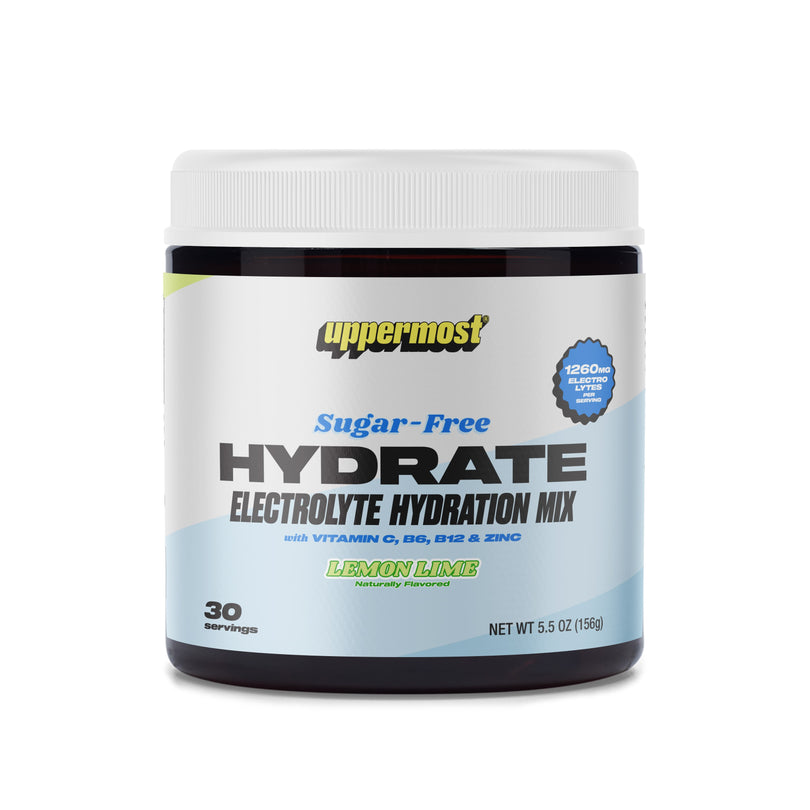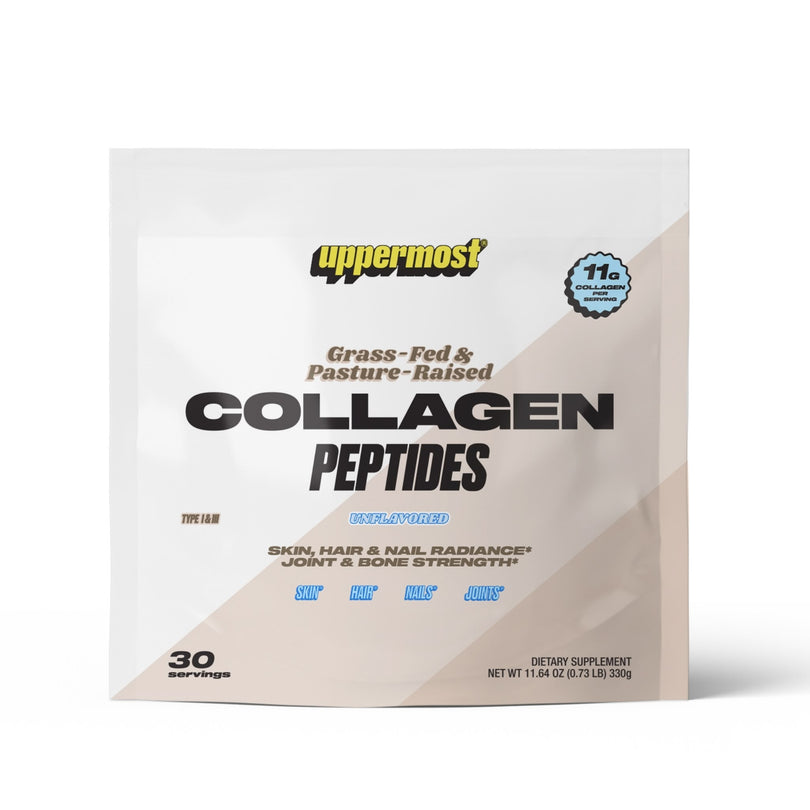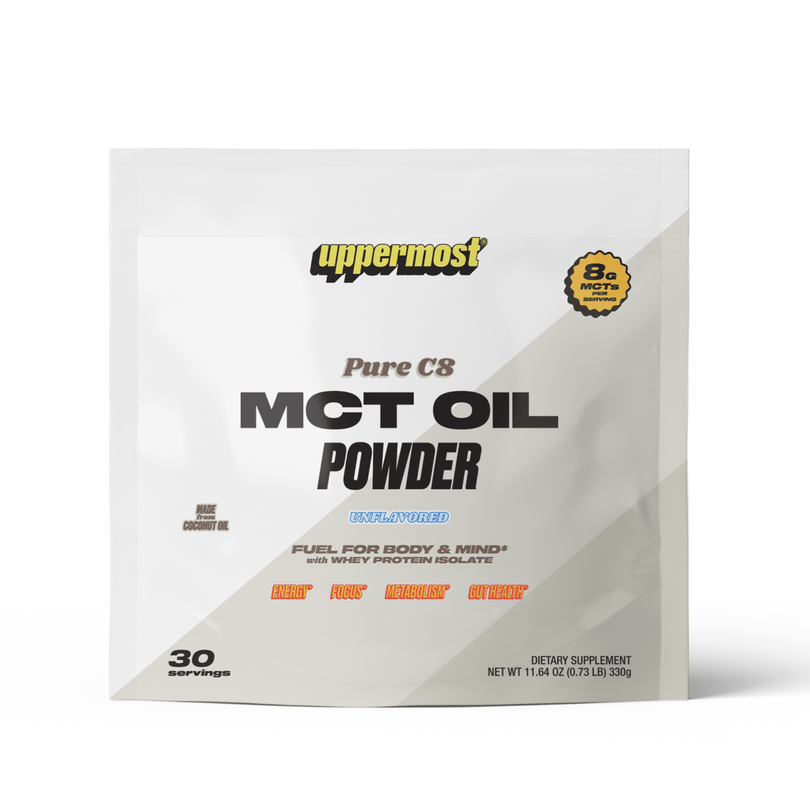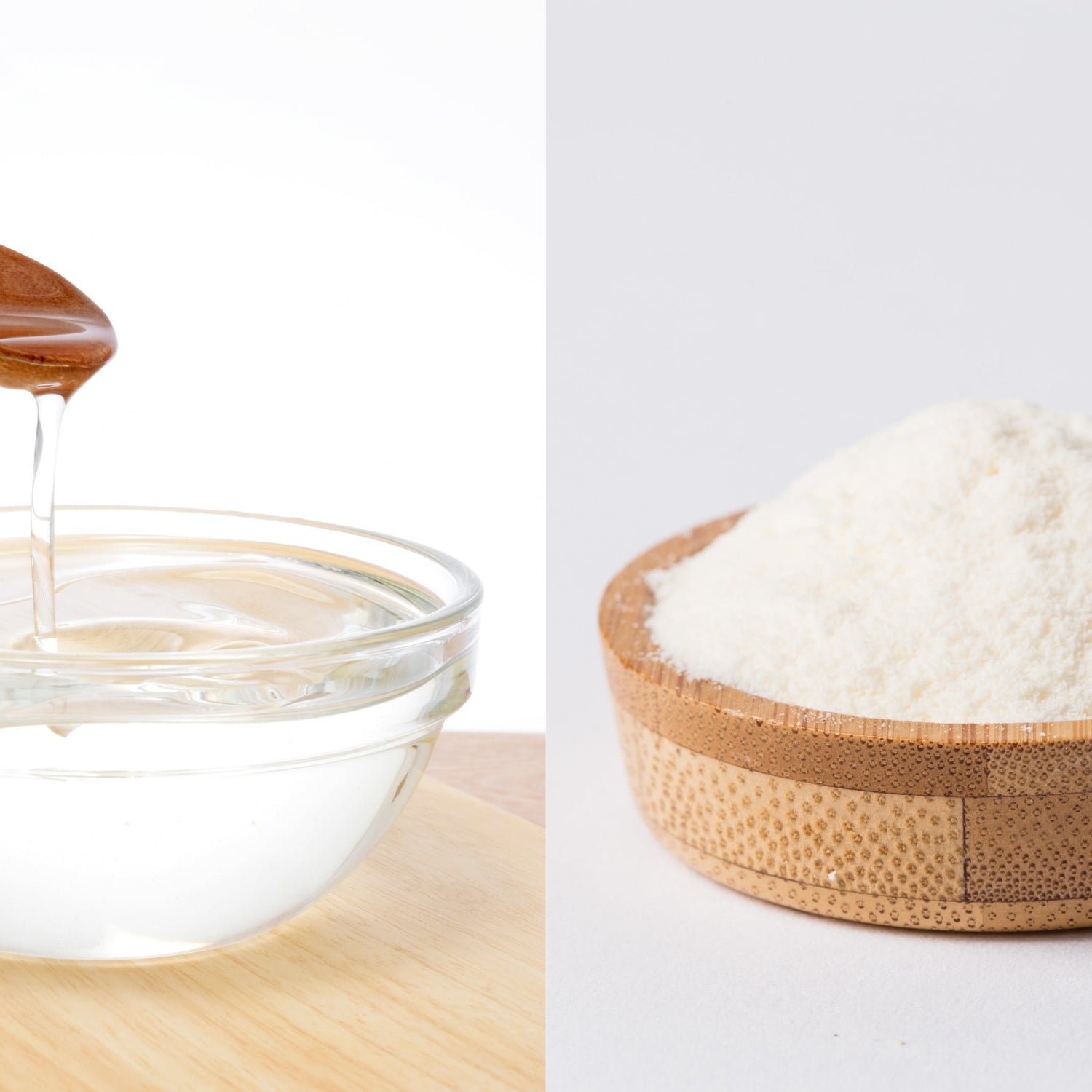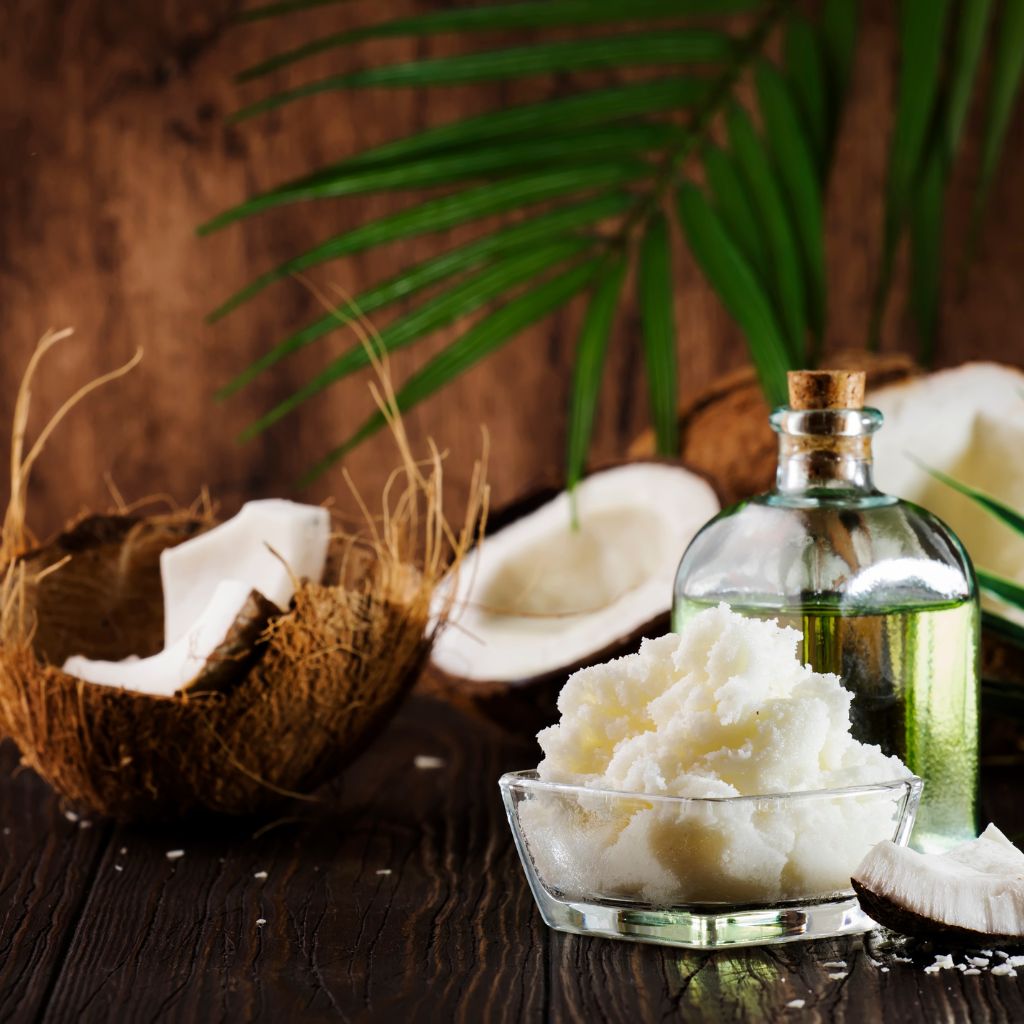Medium-Chain Triglyceride (MCT) oil has gained popularity in the wellness community as a quick and efficient energy source that is particularly beneficial for those on ketogenic and low-carb diets. Derived primarily from coconuts, MCT oil provides the body with a unique type of fat that’s metabolized more quickly than other fats, making it a favored option for those seeking sustainable energy and cognitive support.
However, there’s a relatively new alternative on the market: MCT oil powder. In this guide, we’ll explore the differences between MCT oil and MCT oil powder, their respective benefits, and how to determine which form is best suited to your health and lifestyle needs.
What Are MCTs and Why Are They Popular?
MCTs are a type of fat found in certain oils, particularly coconut oil. Unlike long-chain triglycerides (LCTs), MCTs are more easily broken down by the body due to their shorter chain length, leading to faster absorption and energy conversion. The body converts MCTs directly into ketones in the liver, offering an immediate energy source without a significant impact on blood sugar levels.
This rapid conversion has made MCTs especially popular among people on ketogenic diets, as they help maintain a state of ketosis. MCT oil is most commonly used by those who want to support weight management, improve cognitive performance, boost exercise performance, and maintain steady energy levels.
MCT Oil: The Basics
MCT oil is a liquid form of medium-chain triglycerides, typically extracted from coconuts or palm kernels (though coconut is the preferred source due to sustainability and purity concerns). Most commercial MCT oils focus on two main types of MCTs – caprylic acid (C8) and capric acid (C10) – as these are the most rapidly absorbed and beneficial forms.
Benefits of MCT Oil
- Quick Energy Source: MCT oil is one of the fastest sources of clean energy, ideal for athletes and individuals needing a quick boost without a blood sugar spike.
- Enhanced Mental Clarity: Since ketones can cross the blood-brain barrier, MCT oil may help improve cognitive function and mental clarity, which is especially helpful for those with demanding schedules.
- Supports Ketosis: MCT oil is a favored supplement for ketogenic diets as it encourages the body’s production of ketones.
- Appetite Control: Some research suggests that MCT oil can increase satiety, helping reduce cravings and overall calorie intake.
Drawbacks of MCT Oil
- Digestive Discomfort: MCT oil is highly concentrated, and taking too much can cause gastrointestinal discomfort, especially for new users.
- Messy and Less Convenient: MCT oil is prone to spills and leaks, making it less portable and more challenging to incorporate on the go.
- Limited Use in Recipes: MCT oil has a low smoke point, meaning it cannot be used for high-heat cooking. It also tends to separate in drinks and foods, making it tricky to use in recipes outside of smoothies and coffee.
What is MCT Oil Powder?
MCT oil powder is a relatively new innovation designed to offer the benefits of MCT oil in a more versatile, user-friendly form. MCT oil is transformed into a powder by combining it with a carrier substance, like acacia fiber. This powder can then be easily mixed into a variety of foods and drinks, expanding the ways MCTs can be incorporated into daily routines.
Benefits of MCT Oil Powder
- Easier on Digestion: The powdered form is often easier to digest, making it a preferable option for those sensitive to the liquid form of MCT oil.
- Versatile in Recipes: MCT oil powder mixes seamlessly into a wide variety of foods, from smoothies to baked goods, without separating or affecting the texture.
- More Portable: MCT powder is easy to transport and doesn’t risk leakage, making it a convenient option for travel or daily use outside the home.
- Prebiotic Carrier Benefits: Many MCT powders use acacia fiber, a prebiotic, as a carrier. This can enhance gut health by supporting a healthy balance of gut bacteria.
Drawbacks of MCT Oil Powder
- Potential Additives: Some MCT powders contain fillers, artificial flavors, or sweeteners, which may be less desirable for those looking for a clean product.
- Lower MCT Concentration: Since the powder is combined with a carrier, MCT oil powder usually contains a lower concentration of MCTs than the pure oil form, meaning you may need a higher dose to achieve the same effects.
Comparing the Health Benefits: MCT Oil vs. MCT Oil Powder
Energy and Performance
Both MCT oil and MCT oil powder are excellent sources of quick, clean energy. The body can convert MCTs into ketones within minutes, providing a rapid boost. However, due to its higher concentration, liquid MCT oil tends to be faster-acting and more potent than MCT oil powder, which might make it a slightly better choice for those who need quick energy.
Digestibility
MCT oil powder is often easier on the digestive system, thanks to the carrier fiber (usually acacia) that supports gut health and helps smooth out the digestive process. MCT oil, on the other hand, can cause digestive discomfort if taken in large amounts or too quickly. Starting with a small dose and gradually increasing can help prevent this discomfort, but sensitive individuals may still find MCT oil powder easier to tolerate.
Versatility in Diet
MCT oil powder stands out as the more versatile choice. Its powdered form makes it easy to incorporate into various foods, such as shakes, smoothies, yogurt, and baked goods, without altering the texture. In contrast, MCT oil has a limited range of applications due to its low smoke point and tendency to separate when mixed into drinks or foods.
Convenience
MCT oil powder is more convenient for on-the-go use, as it is portable, lightweight, and mess-free. It doesn’t require careful handling to prevent leaks, making it ideal for busy individuals who want to take MCTs with them to work, the gym, or when traveling.
Key Factors to Consider When Choosing Between MCT Oil and MCT Oil Powder
Purity
If you’re looking for the purest MCT source, MCT oil is the better choice. It is typically 100% medium-chain triglycerides without additives or fillers. MCT oil powder, on the other hand, requires a carrier to turn it into powder form. When choosing an MCT powder, look for one with a natural, high-quality carrier, such as acacia fiber, and without unnecessary additives.
Taste and Texture
MCT oil is flavorless and odorless, making it easy to add to beverages like coffee or smoothies without impacting the taste. MCT oil powder is also generally neutral in flavor, though some powders are flavored or sweetened to enhance the taste. The powder form has a creamier texture, making it popular as an addition to coffee or shakes to create a smoother, richer experience.
Effect on Ketosis
Both MCT oil and MCT oil powder support ketosis, making either option suitable for those on ketogenic or low-carb diets. However, due to the lower concentration of MCTs in the powder form, MCT oil may offer a more immediate effect on ketone levels, making it slightly more effective for individuals aiming to stay in ketosis.
Longevity and Shelf Life
MCT oil and MCT oil powder have relatively long shelf lives, though MCT oil powder may have a slight advantage due to its stability and lower risk of oxidation. This makes MCT oil powder an excellent option for long-term storage and consistent daily use.
Practical Applications of MCT Oil and MCT Oil Powder
Cooking and Baking
- MCT Oil: Due to its low smoke point, MCT oil is best reserved for no-heat recipes, such as salad dressings, smoothies, or coffee.
- MCT Oil Powder: MCT powder is more versatile in the kitchen, easily incorporated into baked goods, protein shakes, oatmeal, or soups without separating or impacting texture.
Bulletproof Coffee
- MCT Oil: Popular in bulletproof coffee for keto practitioners, MCT oil provides a rich and smooth texture but can be difficult to mix without an immersion blender.
- MCT Oil Powder: The powder form blends effortlessly in hot beverages, making it ideal for bulletproof coffee without the need for a blender, and results in a creamier consistency.
Travel and On-the-Go Use
- MCT Oil: Although effective, MCT oil can be inconvenient to travel with due to its liquid form, potential for spills, and restrictions on liquid quantities.
- MCT Oil Powder: Portable, mess-free, and lightweight, MCT oil powder is perfect for individuals needing a travel-friendly option.
Which Option is Right for You?
Ultimately, the choice between MCT oil and MCT oil powder depends on your lifestyle, dietary preferences, and how you intend to use the product.
- If you prioritize purity and rapid effects: MCT oil is the better choice, especially if you want the highest concentration of MCTs for quick energy and ketosis support.
- If you prefer versatility, convenience, and digestive ease: MCT oil powder is the more flexible option, ideal for on-the-go use and adding to a variety of recipes without digestive upset.
A High-Quality Option: Uppermost’s MCT Oil Powder
Uppermost’s MCT Oil Powder offers a high-quality, coconut-derived source of MCTs combined with acacia fiber, a natural prebiotic that supports gut health and enhances digestibility. Designed with convenience and versatility in mind, this powder is perfect for adding to coffee, smoothies, and baked goods for sustained energy and mental clarity.
For those looking to optimize their health routine, Uppermost’s MCT Oil Powder provides an easy, clean, and effective way to incorporate MCTs without the mess or digestive discomfort associated with the liquid form.

